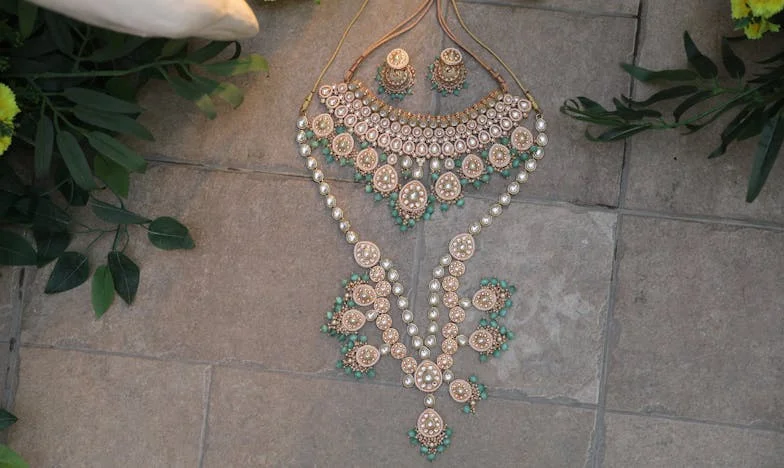The Porcelain Set I Never Got to Keep
“You’re always so greedy, Emily,” Mom said, her voice slicing through the hum of Thanksgiving dinner. The whole family went silent, forks hovering mid-air. I was twenty-eight, not eight, but her words stung as sharply as they did when I was a kid.
I looked down at my plate, pushing the mashed potatoes around, the memory of the porcelain tea set flashing in my mind. That set—white with tiny blue forget-me-nots—had once belonged to my grandmother. I’d loved it as a child, hoping it might one day be mine. But it hadn’t lasted long.
I remember that day like a scar. I was seven, sitting at the kitchen table, tracing the delicate gold rim of a cup. Mom bustled in with her best friend, Aunt Renee, arms full of Tupperware and laughter. “Emily, go get your coat. We’re going to the park with Aunt Renee and her girls,” she said. I protested, not wanting to leave my tea set. “Come on, don’t be selfish,” she scolded. I obeyed, but when we got home, the tea set was gone.
“Where’s my tea set?” I asked, panic rising in my throat.
Mom shrugged. “I gifted it to Renee for her twins. You never really played with it anyway.”
Something in me broke right then—a piece of trust, maybe. I learned that nothing in our house was really mine, that my mother could give away any of my treasures at a whim, and I had to smile and thank her for it or be labeled greedy.
From then on, I stopped asking for things. For birthday parties, I pretended I didn’t care when my gifts disappeared: the American Girl doll, my favorite art set, the necklace Dad gave me before he left. If I cried, Mom would say, “Don’t be so dramatic, Emily. We’re family, we share.”
I learned to share so well I gave away parts of myself. In college, I let my roommate take credit for our group project. At work, I watched others get promoted while I stayed late, picking up tasks nobody wanted. When I bought my first car, Mom called it “extravagant” and asked to borrow it for months at a time.
So, at Thanksgiving, when Mom publicly scolded me for being greedy, I couldn’t hold it in anymore. “Mom, I’m not greedy,” I snapped, my voice trembling. “I gave away your porcelain set to Aunt Renee when you were in the hospital. I thought you’d want her to have it.”
Everyone stared. Aunt Renee choked on her wine. Mom’s eyes narrowed.
“You did what?” she hissed.
“I thought I should be generous, like you taught me,” I said, forcing a shaky smile. “You always said I was selfish, so I wanted to prove you wrong.”
The silence felt endless. My younger brother, Mark, cleared his throat. “Em, you never were selfish. Mom just…she just likes to control things.”
Mom shot him a look that could kill. “Don’t talk to your sister like that. Emily, you had no right to give away my things.”
“But you always gave away mine,” I whispered, my voice breaking. “Why is it different when I do it?”
She glared at me, lips pressed into a thin line. “Because I’m your mother. I decide what’s best.”
I stood up, my heart pounding. “Maybe I get to decide now, too.”
I left the table. I heard the murmur of voices, the scrape of chairs, but I didn’t look back. I sat on the porch, the cool night stinging my cheeks. Mark joined me, handing me a glass of wine.
“You okay?” he asked.
I shook my head. “Not really.”
He nudged me. “You know, you don’t have to keep proving you’re not greedy. You’re the most generous person I know. Mom just…she’s scared. She thinks if she doesn’t control everything, she’ll lose us.”
I stared at the stars, thinking about all the things I’d lost so Mom could feel safe. “I’m tired, Mark. Tired of giving away pieces of myself.”
He put his arm around me. “Then stop. Start keeping things that matter.”
It wasn’t easy. Christmas came, and Mom acted like nothing had happened. I got her a simple scarf, nothing fancy. When she opened it, she smiled, but I could see the disappointment. She liked grand gestures, things she could show off. I didn’t offer to drive her to the mall or loan her money for the car payment this time. I said no when she asked if she could have my new blender.
“You’re changing,” she said, suspicion lacing her words.
“Yeah,” I replied. “I think I am.”
Little by little, I put up boundaries. I kept my things, my time, my feelings. I started painting again, something I’d stopped years ago when Mom gave away my supplies. I decorated my apartment with thrift-store finds and painted mugs—nothing valuable enough for Mom to want. I even hosted my first dinner party, serving tea in mismatched cups.
Aunt Renee called one night. “Emily, I just found the tea set in the attic. The girls never used it. Do you want it back?”
I hesitated. “No,” I said finally. “I think I’m okay letting it go.”
But after we hung up, I cried—for the little girl who wanted to keep something just for herself, for the woman learning it’s okay to have boundaries, for the mother who never learned how to let go.
Sometimes I wonder: Do we ever really stop carrying our childhood wounds? Or do we just learn to live with them, a little lighter every day? Would you have done the same as me?
